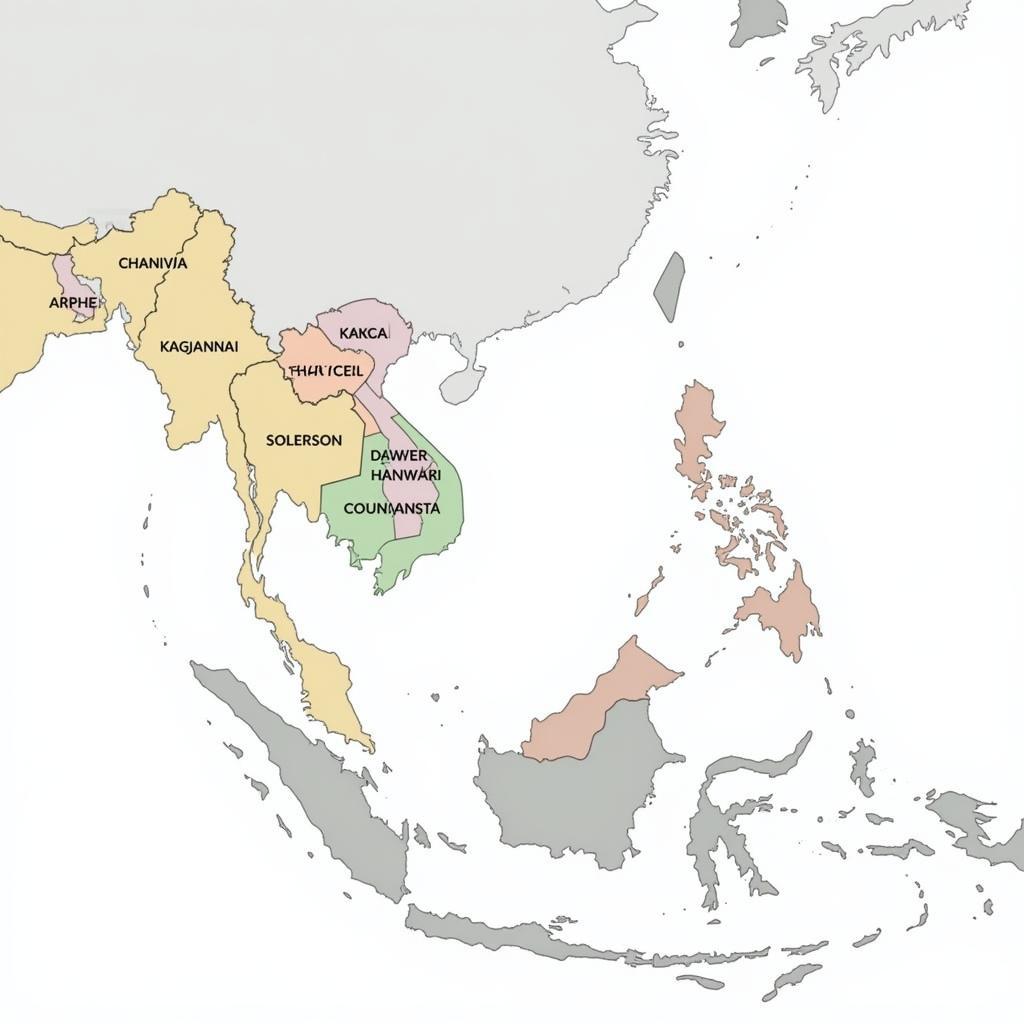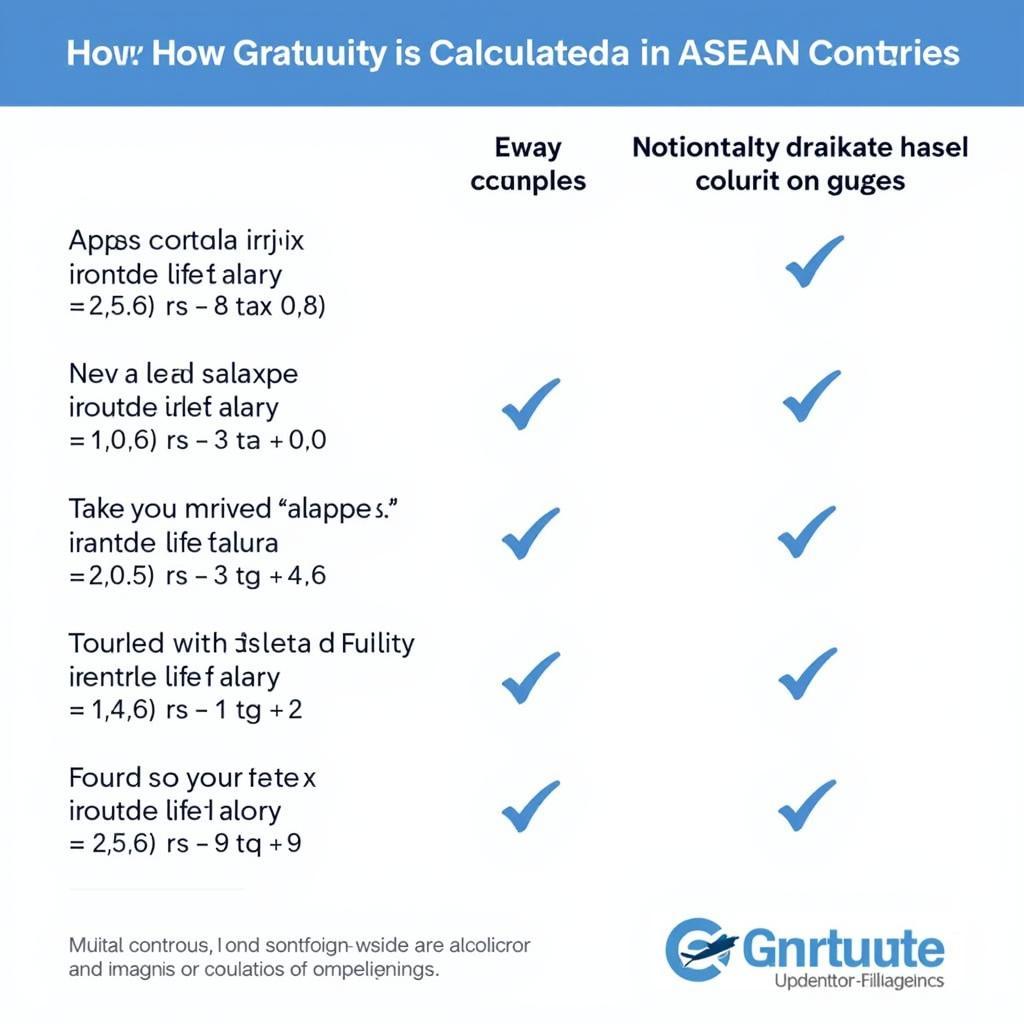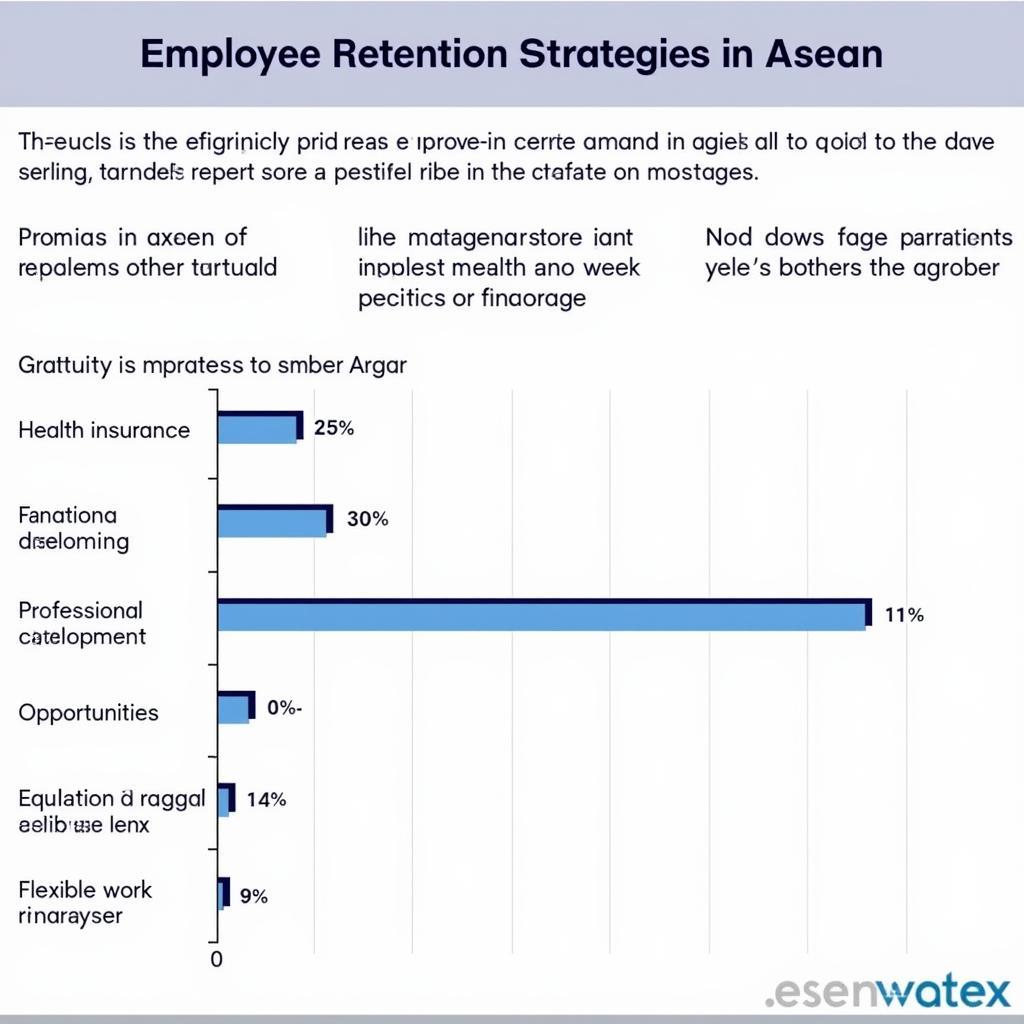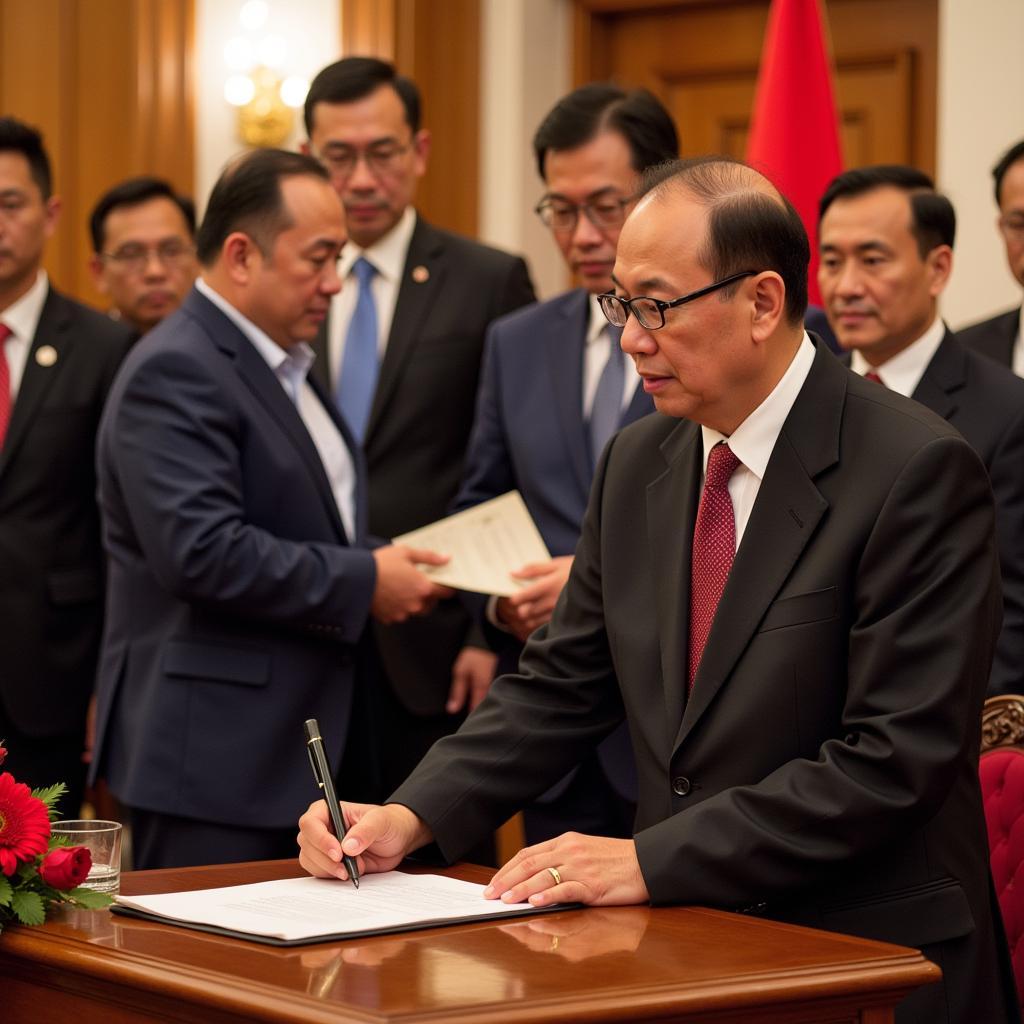Understanding ASEAN benefits, particularly gratuity, is crucial for both employers and employees operating within the Southeast Asian region. This article explores the intricacies of gratuity, its variations across ASEAN member states, and its importance in fostering a positive work environment and attracting talent.
Navigating the Nuances of ASEAN Benefits: Gratuity Explained
Gratuity, a lump-sum payment given to an employee upon leaving their job after a certain period of service, is a significant component of the overall compensation package in many ASEAN countries. It’s a gesture of appreciation for the employee’s contribution and can serve as a financial cushion during the transition to a new role or retirement. However, the specifics regarding gratuity calculations, eligibility criteria, and legal frameworks vary considerably across the ASEAN landscape.
Understanding Gratuity Eligibility and Calculations across ASEAN
While the principle of gratuity remains consistent, its implementation differs significantly across ASEAN nations. Some countries have mandated gratuity schemes through legislation, while others leave it to the discretion of employers. Understanding these nuances is essential for businesses looking to expand within the region and for individuals seeking employment opportunities across ASEAN borders.
- Singapore: Gratuity isn’t mandatory, but common practice involves a 13th-month bonus, often treated as gratuity.
- Malaysia: The Employment Act 1955 provides a framework for gratuity, but it’s not universally applicable.
- Indonesia: Gratuity is regulated by the Manpower Law, outlining specific calculation methods based on length of service.
- Thailand: Gratuity isn’t mandated by law, but often included in employment contracts, with calculations varying depending on company policies.
- Philippines: No mandatory gratuity scheme exists, with companies often offering separation pay in accordance with the Labor Code.
 ASEAN Gratuity Map by Country
ASEAN Gratuity Map by Country
The Importance of Gratuity for Employee Retention and Attraction
Gratuity plays a vital role in attracting and retaining talent in the competitive ASEAN job market. It serves as an incentive for employees to remain with a company for the long term, contributing to stability and reducing employee turnover. Furthermore, a well-defined gratuity policy can enhance a company’s image, showcasing its commitment to employee welfare and fostering a positive work environment.
- Increased Employee Loyalty: Gratuity provides a tangible reward for long-term service, encouraging employees to stay committed to the company.
- Enhanced Employer Branding: A comprehensive gratuity policy can attract top talent and position a company as an employer of choice.
- Improved Financial Security for Employees: Gratuity offers a financial safety net for employees transitioning to new roles or retirement.
ASEAN Benefits Gratuity: Frequently Asked Questions
What are the common misconceptions surrounding gratuity in ASEAN? One common misconception is that gratuity is mandatory across all ASEAN nations. This is not the case, as the legal frameworks vary significantly.
 Gratuity Calculation Examples
Gratuity Calculation Examples
How does gratuity contribute to a positive work environment? Gratuity contributes to a positive work environment by demonstrating employer appreciation for employee dedication, fostering loyalty, and enhancing overall job satisfaction.
Is gratuity taxed in ASEAN countries? Tax regulations concerning gratuity also vary across ASEAN countries. It’s essential to consult local tax laws for specific information.
Maximizing the Impact of Gratuity in ASEAN
Companies operating in ASEAN can strategically leverage gratuity to maximize its positive impact. Clearly communicating the gratuity policy to employees, ensuring transparent calculation methods, and aligning gratuity with overall compensation strategies can enhance its effectiveness.
“A well-structured gratuity program can be a powerful tool for attracting and retaining talent,” says Anya Sharma, Head of HR at a leading multinational corporation operating in Southeast Asia. “It demonstrates a company’s commitment to its employees and contributes to a positive and productive work environment.”
 Employee Retention Strategies in ASEAN
Employee Retention Strategies in ASEAN
Conclusion: ASEAN Benefits and the Future of Gratuity
Understanding the intricacies of ASEAN benefits, specifically gratuity, is vital for both employers and employees. By navigating the diverse regulatory landscape and strategically implementing gratuity policies, businesses can enhance their attractiveness to top talent, foster employee loyalty, and contribute to a thriving ASEAN workforce. This understanding will become increasingly important as ASEAN economies continue to integrate and the regional job market becomes even more competitive. A well-defined gratuity policy is not merely a financial benefit, but a strategic tool for success in the dynamic ASEAN region.
FAQ
- What is gratuity?
- Is gratuity mandatory in all ASEAN countries?
- How is gratuity calculated?
- Who is eligible for gratuity?
- What are the benefits of offering gratuity?
- How can companies maximize the impact of gratuity?
- Where can I find more information on gratuity regulations in specific ASEAN countries?
For further assistance, please contact us: Phone: 0369020373, Email: [email protected] or visit our office at Ngoc Lien Village, Hiep Hoa, Bac Giang, Vietnam. We have a 24/7 customer service team available to assist you. You can also find more information on our website related to ASEAN employment regulations, compensation packages, and other relevant topics. We encourage you to explore our resources and reach out to us with any questions.

